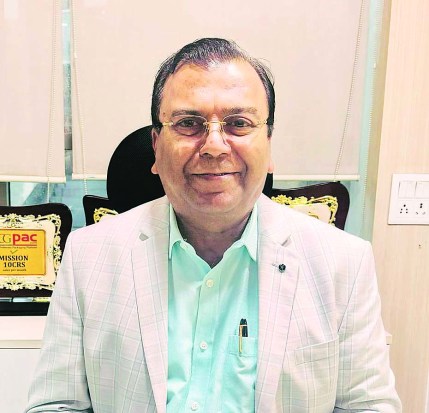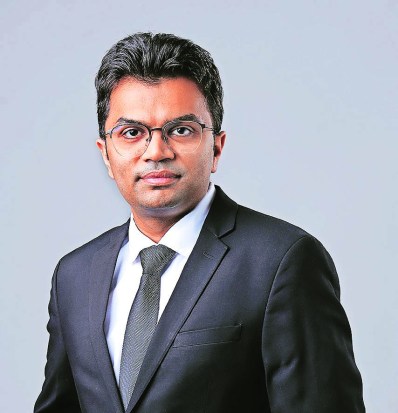India’s MSMEs— despite being the backbone of the economy—struggle with limited resources, intense competition and operational efficiencies. Artificial intelligence (AI) has emerged as a transformative force that can level the playing field for these businesses. AI tools and solutions are empowering them to innovate, optimise workflows and respond to shifting market dynamics with greater agility. Sudhir Chowdhary highlights some of the promising use cases
Finding the right size
Aretto
Footwear for kids

Aretto is a Pune-based footwear brand that caters to children aged 5 months to 10 years across India. The company has embedded AI into the creative and prototyping layer of its product design—where precision, speed and intuition matter most. It uses AI tools to scan global design, material, and lifestyle shifts to inform product direction, reducing turnaround time from insight to sketch.
AI also allows the design team to build moodboards and render base silhouettes much faster, compressing the time between idea and visualisation. With AI-supported slicers and structure algorithms, the company is able to reduce filament use during prototyping, making the process more sustainable and cost-effective.
“AI speeds up parts of the design process to increase efficiency. That means we can test more ideas, prototype quicker, and ultimately design products that are better tuned to a child’s evolving needs,” said Satyajit Mittal, founder & CEO, Aretto. “We’re now exploring how AI might support us across other functions too, from customer experience to supply planning,” he added.
Creating smart infra
Schwing
Stetter India
Construction equipment

Chennai-based Schwing Stetter India is a key player in the construction and concreting equipment industry, manufacturing a wide range of high-performance machinery including batching plants, truck mixers, concrete pumps, and self-loading mixers. The firm has begun integrating AI into its customer service platforms to streamline support and significantly reduce turnaround times.
“In our telematics vertical, AI is driving a transformation by enabling predictive maintenance, real-time performance analytics, and smarter decision-making. Supported by a strong in-house R&D team, we are embedding intelligent automation across our equipment to enhance uptime, safety, and overall operational efficiency,” said VG Sakthikumar, CMD, Schwing Stetter India.
Currently, 10 AI-driven projects are in the pipeline, with one already completed and another in early-stage development for production integration. “We believe AI adoption can be a game changer for Indian MSMEs, especially in bridging the manpower-skill gap, enabling smarter fleet management, and scaling operations efficiently. Democratising access to AI will accelerate competitiveness across the segment,” he added.
Building business agility
Enlight Metals
Metal aggregation

Enlight Metals is a metal aggregator focused on steel, supplying to over 500 OEMs in automotive, solar, cable tray and fabrication sectors. It uses AI-driven demand forecasting models that analyse customer order trends and product movement. On the sales front, AI helps generate personalised quotations by analysing buying patterns, market rates and credit behaviour, said Dhananjay Goel, director, Enlight Metals. “We rely on AI to drive timely procurement, fast delivery, and smarter sales.”
Packing a punch
DCGpac
Packing materials

DCGpac is deploying AI solutions to streamline operations, reduce waste, and enhance customer experiences. A B2B packaging platform, it is integrating AI in demand forecasting to predict customer needs and optimise inventory. Within warehouses, AI-powered intelligent sorting and routing are enhancing productivity. “We’re also exploring AI-driven sustainable design models to develop packaging that is stronger for customers and lighter on the planet,” said Suresh Bansal, the company founder and CEO.
Stepping out in style
Momatos
Kids clothing

The ahmedabad-based brand has turned to AI to bring clarity, efficiency, and real-time insights into its store retail operations.
With Staqu’s Jarvis AI engine, Momatos has gained a 360-degree view of in-store customer behaviour. Through AI-powered footfall analytics and demographic insights, the brand can now track visitor traffic, age and gender distribution, and real-time engagement levels, data that was previously unavailable to the team.
“We now have a clear picture of who is walking into our store, when, and how they engage with our offerings,” said Nikhil Menaria, CFO, Momatos.
Enhancing quality control
True Colors
Textile printing

Surat-based brand positions itself as a one-stop shop for digital textile printing-printers, inks, sublimation paper & fabrics. “We have started using AI in our design department. It is helping us ideate concepts and bring them quickly into reality than the manual process,” said Satish Panchani, CEO & co-founder, True Colors. It is also exploring AI use in ensuring the consistency of its digital printing.
True Colors plans to integrate AI throughout the design, production, and printing operations, not only to enhance the operational efficiency but also to reshape the future of fashion and fabric, said Panchani.

